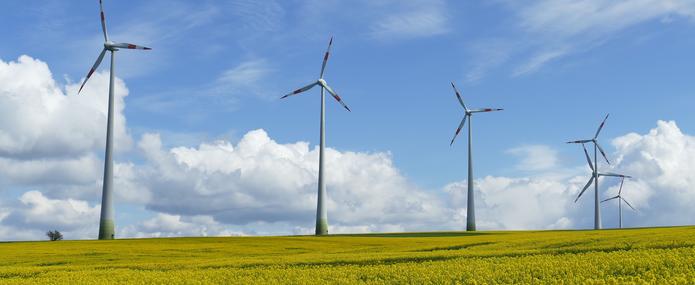Two days before Emmanuel Macron's speech on energy transition, the JDD announced on Sunday the creation of a High Council for Climate. Some newspapers suggested that this council could help strengthen the social dialogue regarding climate policies, or even that it could be a response to the concerns expressed by the “yellow vests” movement. With such an introduction, this council has logically given rise to strong criticism. These announcements and reactions mix in fact three topics which are all important but must be considered separately. These are: the need to provide France with an independent authority to assess climate policies, the need to strengthen a social concertation that is instrumental to their success, and the need to provide a political response to the problems highlighted by the yellow vests.
To steer its transition towards carbon neutrality, France needs a policy framework that is coherent across sectors (energy, transport, construction, agriculture, industry) and over time. This framework must be built and revised on the basis of a forward-looking analysis that reflects the latest technical and economic progress and the changes in the socio-economic context, but also on the basis of a transparent assessment of the impact of existing policies. This capacity for independent evaluation and advice, with a mandate and resources adapted to this mission, is currently lacking to align policy outcomes with France’s stated ambition on climate. IDDRI made proposals through two studies published in July 2018: one on the governance framework and methodological issues for monitoring and evaluating the low-carbon transition, the other on the lessons learned from the Climate Change Committee set up ten years ago in the United Kingdom. Without yet knowing the details of the High Climate Council, which are due to be announced tomorrow, the creation of such a body suggests a strengthening of independent expertise and transparency in climate action. It will then be necessary to take a close look at its mandate, composition, resources and institutional weight; but for the time being, this is good news in itself.
This role is completely different from that of the existing social dialogue body, which is the National Council for Ecological Transition (CNTE). This council, which emerged from the French national debate on the energy transition held in 2013, creates a forum for debate between the various stakeholders - employers' organisations, trade unions, environmental NGOs, local authorities and parliamentarians - and helps to inform the Government’s decisions. The social dialogue body, the CNTE, and the independent expert body that the High Council for Climate Change should be, therefore have different but complementary roles. The High Council for Climate informs the public debate and then the political decision; the CNTE, itself informed by the experts of the High Council, is the forum where the debate that precedes the political decision must take place.
Emmanuel Macron's entourage indicates in an article in Le Monde today that it is necessary "to make the CNTE a democratic forum, where the measures envisaged will be tested with citizens and intermediate bodies". This is also the meaning of the proposal made yesterday by Pascal Canfin, Valérie Masson-Delmotte and Matthieu Orphelin in an op-ed published in Le Point.
But neither the creation of the High Climate Council nor the possible evolution of the CNTE is in itself a response to the current crisis, which requires a political response from the Government.
It would also be inappropriate to address the problems raised by the yellow vests solely through the prism of energy transition policies. The demand of the yellow vests is multifaceted and also relates to the erosion of the purchasing power of low-to-medium income households, exacerbated by a context of worsening social and territorial inequalities. This is also fuelled more broadly by a growing feeling of disenfranchisement from parts of the French population, which no longer feel heard by the ruling elites. Beyond a change in method, the Government must therefore build its response to the social movement on the reduction of social and territorial inequalities.
Responding to this challenge only through an energy transition lens would not only be insufficient, it would also place energy and environmental transition policies at risk of being used as an adjustment variable. The cancellation of plans for the tax on heavy vehicles in the draft strategic law on mobility presented this morning in the Council of Ministers is a telling example in that respect.
The purpose of tomorrow's meeting is precisely to present the draft law on multiannual energy programming. This law is the main policy framework for implementing the energy transition in France, both in terms of energy production and of the enabling conditions for energy demand management. In the same vein, the draft strategic law on mobility aims to promote the development of alternatives to private cars with an internal combustion engine.
Looking ahead, the combined action of the High Council for Climate and of the CNTE should inform the revision in 2023 of the two strategic documents of French climate action: the multiannual energy programming but also the national low-carbon strategy. To give an idea of what monitoring and evaluation of domestic climate policy might look like, IDDRI published in October 2018 a proposal for a method to monitor the low-carbon transition in France and carried out an initial assessment in four key sectors. To help the Government avoid certain pitfalls, such as the current yellow vests crisis, the High Council for the Climate would do well to incorporate skills needed to understand social dynamics, and to give the CNTE a real role as a forum for debate, with its agreements and disagreements.
The yellow vest crisis calls for new social, economic and territorial policies. The energy transition policies to be announced tomorrow should form part of this political response, but cannot be a substitute for such a response entirely.



